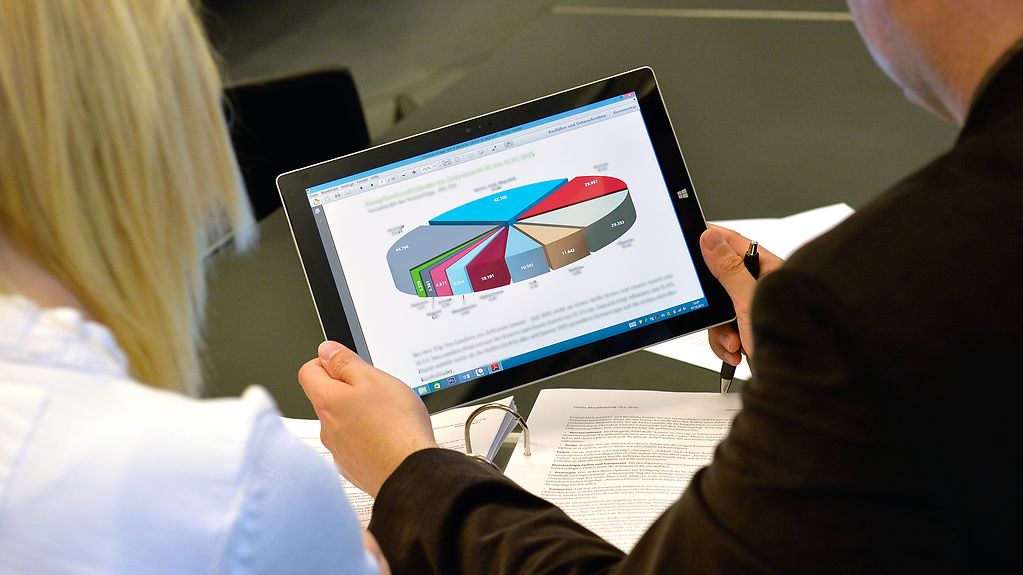Stability programme 2020
The sound financial policy pursued by the German government in recent years means that it is now in a position to support citizens and industry, even over a longer period. This is demonstrated by the German stability programme for 2020 which has now been adopted by the Cabinet.
1 min reading time

Following the decision of the Cabinet, data will be reported to the European Commission in line with the Stability and Growth Pact.
Photo: Bundesregierung/Stutterheim
German financial policy is currently dominated by the fight against the COVID-19 pandemic and the economic repercussions of the pandemic. The aim is to protect the health of the people, save jobs, support companies and retain social cohesion.
Package of measures worth 453 billion euros
To address the crisis, the German government and the federal states have launched extensive packages of financial measures. In 2020 the measures to tackle the pandemic and its consequences, financed from the national budget, will be worth about 453 billion euros. Guarantees total around 820 billion euros.
This year, the general government balance is expected to show a deficit equivalent to 7.25 per cent of the gross domestic product (GDP). By the end of the year, government debt is set to rise to 75.25% of GDP. Given the vagaries of current developments, however, forecasts must be treated with caution.
Investment at record level
As well as weathering the corona pandemic, the German government continues to pursue its longer-term objectives. By 2030, it intends to provide a sum in the triple-digit billion euro range for climate change mitigation through its Climate Action Programme 2030 alone. And the sum earmarked for investment in the 2020 national budget has risen to a record 48.8 billion euros. The government is thus helping ensure that total national investment in 2020 rises by 4.8 per cent to a new record of 89.6 billion euros.
By the end of April each year, European Union member states submit their stability programmes to the European Commission and the Economic and Financial Affairs Council (ECOFIN), in line with the provisions of the Stability and Growth Pact.